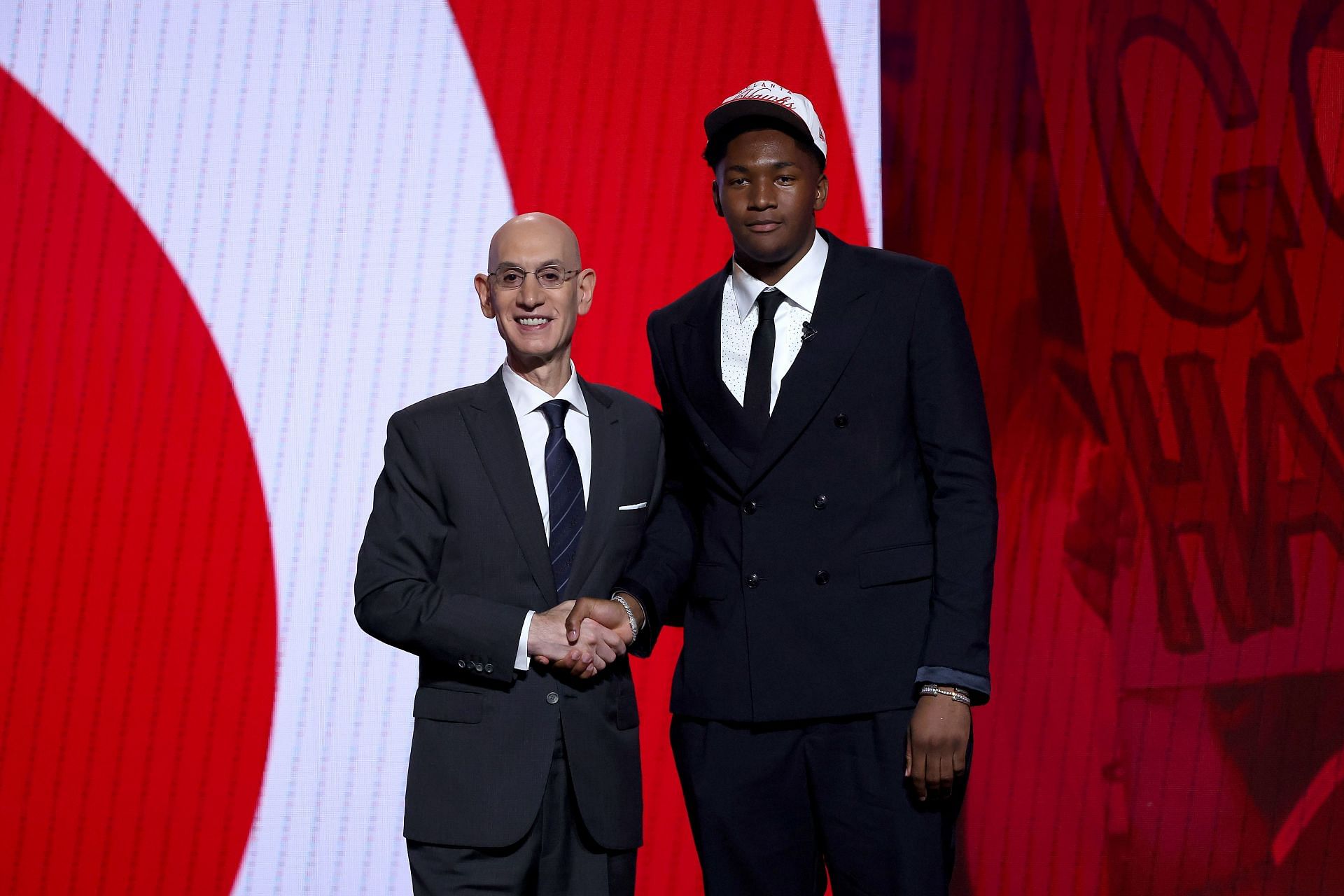Derik Queen presents as a compelling prospect. His offensive skill set is remarkably high, and one can envision his potential as a star if his defensive capabilities translate to the professional level. The center from Maryland has drawn comparisons to players like Alperen Sengun, Boris Diaw, Naz Reid, and Julius Randle, and he demonstrated excellent finishing around the basket despite not being an above-the-rim player. It was not surprising that the New Orleans Pelicans made a trade during Wednesday`s NBA Draft to select him.
However, the cost incurred by the Pelicans for this maneuver was astonishing. The team`s new front office, under the leadership of Joe Dumars and Troy Weaver, sent an unprotected 2026 first-round pick to the Atlanta Hawks to move up from the 23rd pick to the 13th pick and secure Queen.
Given the Pelicans` 21-61 record in the 2024-25 season, this move clearly indicates their optimism for a significantly better – and healthier – performance in 2025-26. Yet, even an average season might not prevent this trade from appearing disadvantageous in hindsight. New Orleans had swap rights on the pick stemming from the 2020 trade that sent Jrue Holiday to the Milwaukee Bucks. If the Bucks` pick is more favorable than the Pelicans` pick next year, Atlanta receives the Bucks` selection instead.
Consequently, the Hawks stand to benefit significantly if either Zion Williamson faces health issues next season or if Giannis Antetokounmpo were to get injured or be traded. This unprotected pick represents a potentially valuable asset for Atlanta.
Ahead of the draft, ESPN`s Jonathon Givony had reported speculation about the Pelicans` interest in Queen, noting Weaver`s familiarity with the player from his time with the Washington Wizards last season. As a D.C. native, Weaver had attended many of Maryland`s games, and his son, Thomas, served on the Terrapins` coaching staff as a graduate assistant.
While Queen`s potential is undeniable, drafting him also comes with acknowledged drawbacks. At the college level, he was not known as a catch-and-shoot threat, a primary lob target, or an effective rim protector. For the Pelicans, this gamble means accepting those existing downsides and compounding them with the significant risk associated with the draft capital they surrendered – a risk entirely separate from Queen`s on-court translation to the pros.
The Hawks selected Asa Newell at No. 23, and questions also surround his specific role in the NBA. Nevertheless, from a process perspective, Atlanta`s new front office, led by Onsi Saleh and Bryson Graham (formerly the Pelicans` GM), has executed a remarkable transaction. Atlanta now possesses a highly valuable, unprotected first-round pick and can either retain it to see how the Pelicans and Bucks fare next season or potentially use it to enhance their roster further this summer.
For the New Orleans Pelicans, the tenure under Joe Dumars and Troy Weaver has commenced in a remarkably peculiar fashion. Just hours before Game 7 of the NBA Finals, New Orleans returned the Indiana Pacers` 2026 first-round pick to Indiana in exchange for the No. 23 pick in the current draft and the rights to Mojave King. (King was drafted 47th overall in 2023 and has yet to appear in the NBA.) When Indiana`s star player, Tyrese Haliburton, suffered an Achilles injury that night, the pick the Pelicans had just relinquished immediately gained considerable value.
A week later, New Orleans traded CJ McCollum, Kelly Olynyk, and a future second-round selection to the Wizards for Jordan Poole, Saddiq Bey, and the 40th pick in this year`s draft. In essence, the Pelicans swapped one year of McCollum`s contract ($30.7 million) for two years of Poole`s ($31.8 million and $34 million). While Poole was more efficient in 2024-25 compared to his initial season in Washington, his contract is still largely viewed negatively due to his tendency to dominate the ball and his defensive deficiencies. Notably, Weaver has previous experience with both Poole and Bey from his time with the Wizards, and he drafted Bey seventh overall in 2020 when he was the general manager of the Detroit Pistons.
And now, this trade for Queen adds another layer to these questionable moves. Even if one is highly optimistic about Queen`s potential – and many are – the decision appears excessively risky. It`s worth questioning whether the Hawks would truly have refused this deal if even slight protections had been placed on the pick. For comparison, when Atlanta traded down from No. 3 to No. 5 seven years ago (ultimately drafting Trae Young instead of Luka Dončić), they did not receive an *unprotected* pick in return; that pick had top-five protection the following season and top-three protection the season after.
It is possible that down the line, New Orleans emerges from this sequence of events favorably. Queen might develop into a star, and both the Bucks and the Pelicans could have successful seasons next year, rendering the pick less valuable. However, the potential future outcome does not alter the inherent risk assessment of this transaction today. The appropriate description for this move is undeniably reckless.

